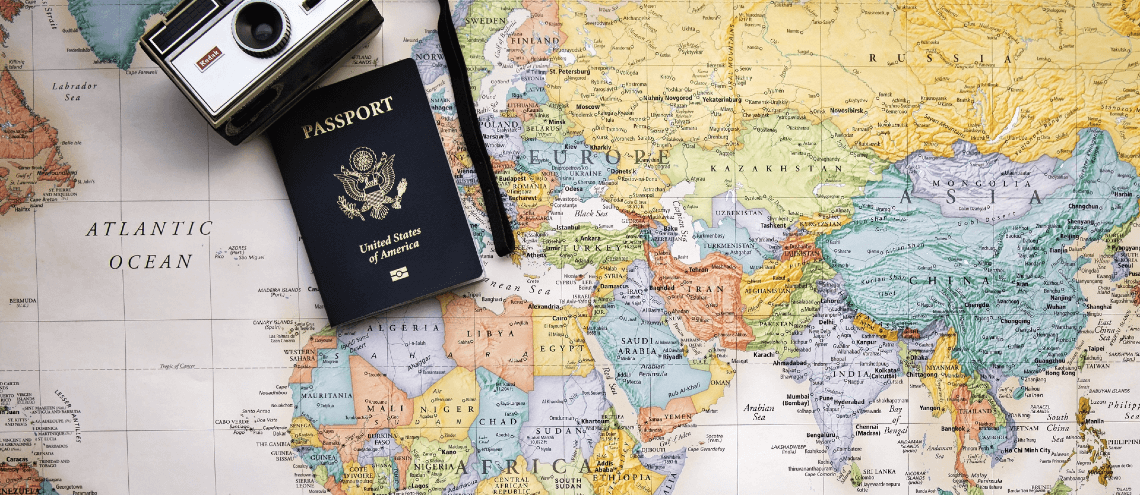Imagine this: You’re on a well-deserved vacation with your family abroad, when suddenly alarms go off in your stomach, signaling you to head to the bathroom immediately. This is known as food poisoning, a foodborne illness resulting from eating or drinking something contaminated with germs.
Today, Pacific Prime Singapore will go over food poisoning, its causes, the risks when traveling, and what to do if you happen to get food poisoning during your vacation.

Food poisoning is a type of foodborne illness that results from people eating or drinking something infected with germs or other contaminants. You may have heard of common symptoms such as upset stomach, diarrhea, or vomiting, all of which could manifest within hours or weeks of consumption.
While most people get mildly ill as a result of food poisoning, some cases of food poisoning can cause more severe illnesses and complications.
Below are the types of germs or contaminants that can infect food and cause food poisoning in the event of consumption:
If spoiled or contaminated, expired food and drinks can also result in food poisoning.
Food can become susceptible to contamination at any point, whether it’s on the farm, in the fishery, or at the table. This means the problem can manifest as early as growing and harvesting, catching, processing, storing and shipping, or preparing.
At home, food can become contaminated from the following unhygienic practices:
Food poisoning symptoms, which can manifest within a few hours or weeks following the consumption, will vary depending on the cause. Below are the common symptoms of food poisoning, some of which you may have heard of:
In rare cases, food poisoning can also affect the nervous system and cause some of the following additional symptoms:
While foodborne illnesses can be picked up anywhere, food poisoning is more common abroad due to potential exposure to foreign pathogens and illnesses your body does not recognize. A good example of this is drinking water, as tap water can have bacteria and parasites our body does not recognize.
While locals can gain tolerance to these pathogens and illnesses over time, that’s not to say they wouldn’t end up sick at some point. For short-term travelers, the amount of time they spend abroad definitely is not enough for their bodies to adapt to these foreign pathogens and illnesses.

If you end up getting food poisoning during your trip abroad, there are ways to reduce the discomfort and manage your symptoms. Below are some methods you could use to alleviate the symptoms.
The first step in alleviating your symptoms of food poisoning is to stay hydrated by drinking plenty of water and/or electrolytes to help replace lost fluids resulting from passing stools or vomiting.
If you’re still hungry, try to stick to bland, low-fat, low-fiber foods without extreme condiments such as strong sauces or seasonings, as they can trigger stomach irritation and cause an upset stomach.
Carbohydrates are highly recommended due to simple digestion. You can eat pasta, rice, plain potatoes, crackers, or plain toast.
Getting sufficient rest is another good way to help your body heal from food poisoning, so remember to take it easy and get some good bed rest until you feel better.
If you have a fever resulting from food poisoning, you can take Tylenol pills to reduce your fever. Most doctors don’t recommend anti-diarrheal meds such as Imodium unless necessary, as diarrhea is the body’s natural response to expel toxins from your body.
Since you’re abroad, we strongly recommend doing your research on the medication available in the country. You can try visiting the pharmacy to see if they have any relevant medication available.
Or, if you’re still not sure, it would be best to see a doctor for official medication recommendations, which brings us to the next point.
If you’re unsure of medication choices and recommendations, or if your symptoms worsen somehow, seek medical attention immediately. A few warning signs to look out for are persistent fever, bloody stools, abdominal pain, or dehydration.

Before traveling, be sure to do your research on destination-specific health risks and preventative measures. When traveling abroad, it’s strongly recommended that you bring along some basic medication for stomach issues and rehydration solutions so that you’re prepared for potential symptoms.
During the trip, practice proper hygiene by washing your hands before and after meals, and pay attention to the handling and serving. Eat properly cooked foods from reputable restaurants or vendors and avoid any foods that trigger stomach irritation if you had stomach-related issues before.
Traveling abroad is an amazing opportunity, whether it’s on your own or with your friends and family. However, as you head into foreign countries, there are also risks of illnesses and diseases you may not have had before, such as food poisoning.
But that’s not to say it can’t be prevented at all. With basic precautions such as proper hygiene and food storage, freshness selections, and some medication preparations, you can safeguard yourself from foodborne illnesses to ensure you get the safe, healthy quality time abroad that you deserve.
Knowing the risk of illnesses and injuries abroad, there are multiple ways to safeguard yourself before, during, and after the trip. But what about covering medical bills and treatment? That’s where our experts at Pacific Prime come in.
Being a global health insurance broker, Pacific Prime has over 20 years of matching locals, expats, and travelers to their insurance plan of choice, including travel insurance for short-term travels.
Whether you need travel insurance for short-term travels or long-term international health insurance, Pacific Prime is here to lend you a helping hand in simplifying insurance with impartiality and service-mindedness.
If you have any further questions, please feel free to reach out and get in touch with us.
Please disable adblock to proceed to the destination page